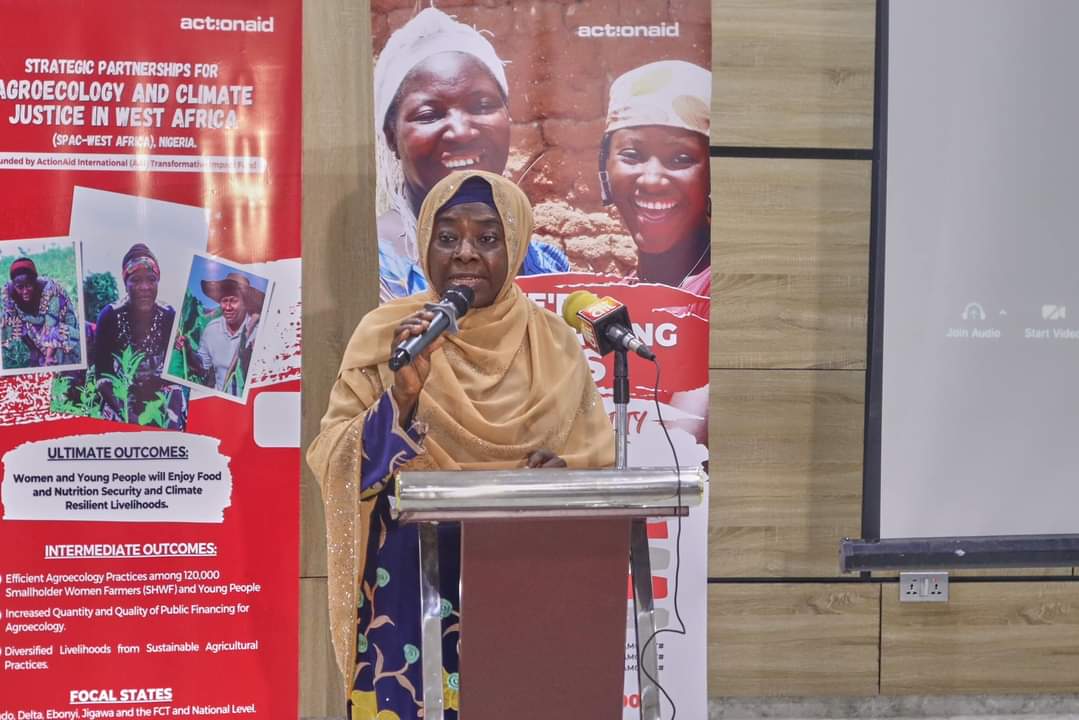By Rabiu Sanusi
ActionAid Nigeria is deeply concerned about the recent announcement by the Federal Ministry of Water Resources and Sanitation and the Nigeria Hydrological Services Agency (NIHSA) regarding the 2024 Annual Flood Outlook (AFO), particularly the communities residing in the 148 Local Government Areas (LGAs) expected to be most affected.
Speaking in Abuja, Andrew Mamedu, Country Director of ActionAid Nigeria, noted that “The potential impact of flooding on the lives and livelihoods of millions of Nigerians cannot be overstated.
As we face the looming threat of high flood risk, the Federal and State governments, and all relevant agencies must promptly take action to mitigate the potential devastating effects.”
While applauding the Federal Government for the early warning this year, ActionAid Nigeria urges all three tiers of government to make good use of the ecological fund at the disposal of the government for better preparedness for this anticipated flood.
“The federal government must not allow floods to set us back year after year. With proper measures in place, we can significantly mitigate the impact of floods and prevent recurring crises.
He added that the Failure to act not only exacerbates the suffering of vulnerable communities but also risks further entrenching poverty amidst the already high cost of living in Nigeria.
The current flood situation in Nigeria demands urgent plans and solutions, including prioritising investment in robust flood prevention infrastructure such as adequate drainage systems, levees, and relevant dams.
“Long-term solutions require proper and comprehensive urban planning and land-use management policies to prevent unchecked development in flood-prone areas.
This involves enforcing zoning regulations, relocating vulnerable communities to safer areas, and preserving natural floodplains to absorb excess water during heavy rainfall.”
At the immediate and as a matter of urgency, ActionAid Nigeria demands that:
The Federal and State governments must prioritise disaster preparedness and allocate resources accordingly.
This includes establishing identified locations where displaced persons can live temporarily, serving as IDP centres. These locations must not be schools or health care centres.
“They should collaborate with humanitarian organisations to swiftly have plans in place to respond to the needs of affected communities, particularly with the provision of dignity kits, food supplies, non-food items, and cash assistance, with a particular focus on women, children, youths, and persons with disabilities.
The Ministry of Education and Health must promptly develop and implement comprehensive plans to ensure continued access to education and healthcare services, especially for women and children.
He also Recognises that displaced persons often seek refuge in schools, which often halts education for children during displacement, it is crucial to safeguard these institutions and ensure that essential services remain uninterrupted.
” State Governments should implement measures to protect smallholder women farmers who may be adversely affected by flooding.
“Adequate support, including provision of safe storage facilities for farmers to store their produce to prevent loss to flooding, access to seeds, tools, and resources for climate-resilient agriculture, should be provided to mitigate the risk of exacerbating food insecurity in the aftermath of floods.
The Ministry of Water Resources, Ministry of Humanitarian Affairs, Federal Emergency Management Agency (FEMA), and State Emergency Management Agencies (SEMA) should collaborate with the National Orientation Agency to ensure that messages reach communities at the grassroots level.
Communication efforts must extend to local communities in their language, enabling effective disaster preparedness and response measures to mitigate the impacts of flooding on their livelihoods.
” Donors and development partners urgently consider strengthening their plans and extend their support to the federal and state governments, as well as relevant ministries and agencies, to assist affected communities in establishing and maintaining safe and efficient IDP centres and delivering essential supplies to mitigate the impact of the flood on the people.
Additionally, Development partners are enjoined to join their voice with ActionAid Nigeria to hold the government accountable to ensure prompt action in mitigating the possible impact of the flood on people.
Mr Mamedu concluded that “The Federal Government cannot afford to be complacent in the face of this impending crisis. ActionAid Nigeria stands ready to support and collaborate with government agencies, humanitarian organisations, and other stakeholders to ensure the safety and well-being of all Nigerians.




